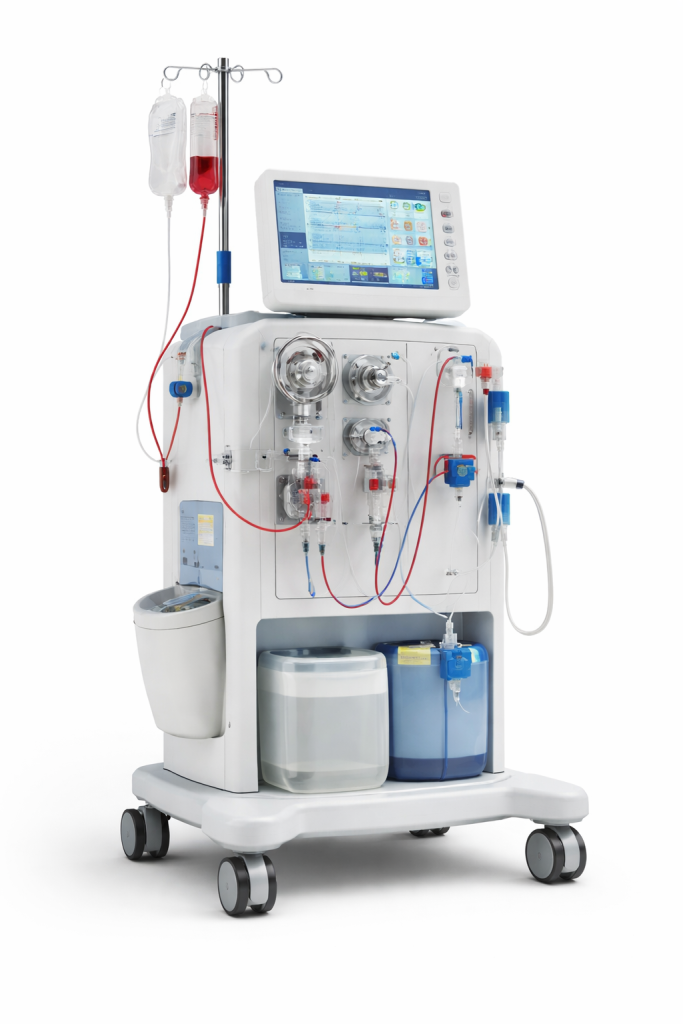Nephrology
Overview
Grand Launch

Advanced Dialysis Facility Now Open
We are pleased to announce the launch of our state-of-the-art Dialysis Machine, designed to deliver safe, efficient, and comfortable renal care with advanced medical technology and patient-focused outcomes.
✔ High-efficiency dialysis with precise fluid management
✔ Advanced safety monitoring for enhanced patient protection
✔ Faster, smoother sessions with minimal discomfort
✔ Comfortable, patient-friendly treatment environment
key Aspects of Nephrology
Key Aspects of Medical Gastroenterology

Hypertension Management
Nephrologists address high blood pressure, a common cause of kidney damage, collaborating with Supreme Hospitals.

Dialysis

Kidney Transplantation

Electrolyte and Acid-Base Disorders
Experts in diagnosing and treating electrolyte imbalances and acid-base disorders, nephrologists play a vital role in maintaining balance post-kidney Transplant surgery

Diagnostic Tools
Utilizing various diagnostic tools, including blood/urine tests, imaging studies, ( such as and kidney biopsies, nephrologists evaluate kidney function at Supreme Hospitals.
Prevention and Education
Nephrologists educate on kidney health, recommend lifestyle changes and medication management for disease prevention, and collaborate with Supreme Hospitals.
As a leading Kidney Specialist Hospital, Supreme Hospital ensures holistic kidney care. Nephrologists at Supreme Hospitals lead in diagnosis, treatment, and management, enhancing patients’ overall quality of life




